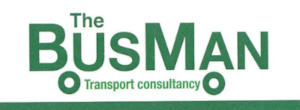One of the benefits of living in North Wales is that the Welsh Concessionary Travel Scheme still provides free bus travel at the age of sixty, at all times of the day. It is possible to enjoy the beautiful Welsh countryside free of charge, using a bus network that is still fairly comprehensive, despite recent cuts. If you avoid school times, buses, unlike trains, are not crowded. And, using Traveline Cymru, a day’s exploring can be planned, often incorporating a walk as well.
In some ways I am the archetypal Englishman. I can travel on the same train for months, with the same people, with no communication other than a grunt and a nod. So I am enjoying my bus ride and the bus stops at a lane end. Someone gets on and I think: “Oh no! Please don’t come and talk to me!” But sure enough, they sit next to me and launch into a conversation. “Where are you going? Where are you from? Why are you on your own?” It does occur to me that I may be the first person they have spoken to since the last time they caught the bus. Hopefully someone else, a regular traveller, will get on and my companion will switch to catch up on the news with an old friend. This is one of the values of the rural bus. You don’t need to go to the shops every week. The local supermarket will deliver your shopping to the door. But catching the bus gives an opportunity to meet people, to talk and share news.
In the United Kingdom loneliness is at crisis level with millions of people feeling lonely often or all of the time. From a health point of view, loneliness is more damaging than smoking. The government has appointed a Minister for Loneliness. A Loneliness Strategy has been produced which states that people need transport to help combat isolation. Regular bus services are one answer, but the provision of regular bus services in rural areas is also in crisis. Local newspapers frequently headline the isolation caused by the withdrawal of another bus service lifeline.
Unfortunately, in British national and local government departments, each department has its own budget and it doesn’t seem possible to see across departmental barriers. What I mean is this – Mrs Williams lives on her own but she is still active. She no longer feels able to drive her own car but she has a regular bus service, she can get into town, volunteer in a charity shop, interact with people, do her shopping, feel independent. But the bus service is funded by the Council and the bus service support budget is under pressure and the service Mrs Williams uses is threatened with withdrawal. The only consideration is whether the transport budget can fund the service. There is no consideration of the impact on the Social Services budget or the NHS budget of Mrs Williams losing her independence, losing her opportunity to meet people and no longer feeling she is contributing to the community.
The introduction of free concessionary bus travel is now viewed by some as a mistake that we can’t reverse. To reduce the cost, we could raise the age threshold and reduce availability. However, we need to look at the bigger picture. Research has shown that bus revenue funding delivers up to £3.80 in wider social, economic and environmental benefit for every £1 spent.*
Going back to Mrs Williams’ bus service: as The BusMan, I should support the retention of all bus services. But I have a problem – many of these threatened services are not used. I have been doing some work for Denbighshire County Council and travelling to and from work from one local centre to another by bus. My journey to work involves me sharing the bus with 20–25 school children but usually no other adult passengers. My journey home is on the only afternoon peak time public transport journey between the two towns, and for most of the 14 miles I am the only passenger. How can I support and justify the retention of that service? Much as I want to campaign for a rural bus network, I question whether the traditional model of a regular timetabled bus service is sustainable in really rural areas. But the social, economic and environmental consequences of rural communities that are completely reliant on the private car remain. So what is the answer?
Lets go back to my imaginary Mrs Williams, living in her small rural settlement on her own and in her 70’s. How can she retain her independence and enjoy the social interaction and exercise that she needs? Her bus service has now fallen victim to Council cuts and has been withdrawn. But a number of vehicles come into her village on a regular basis. A minibus, paid for by the Education Department of the County Council, comes to take older children to the main road, to catch the bus to the secondary school in town. It then returns to the village to pick up the younger children, to take them to the primary school in the next village. A taxi, again paid for by the Education Department, collects a child with special needs, to go to another school. Then another taxi, this time paid for by the Social Services Department, arrives to take Mrs Williams’ neighbour to a day care centre. Next the Royal Mail van arrives to deliver and collect the village’s post. Later, hospital transport funded by the NHS arrives, to take another neighbour for a hospital appointment. Then a white van arrives, with a parcel ordered from Amazon, followed by a supermarket delivery van, with a weekly shop. All of this transport is serving the village, but Mrs Williams can’t get out to live her life as she wishes to.
Is it not possible to find a way of utilising all this transport, to give people in rural areas access to the services they need? It would need support from the community, buy-in from all public sector departments, commitment from the private sector and someone to lead and co-ordinate. However, with today’s IT capability, surely local schemes could be developed? For example, if a group of people in a community agreed to make their weekly order from one supermarket on one day, would the supermarket add a couple of seats to their van and offer Mrs Williams a lift? Could all trips into a community be entered into a database, so that Mrs Williams could see what was available?
It would need some work to set it up, and a commitment from all parties involved, but set against the cost of loneliness and isolation in rural communities, and the unsustainability of conventional solutions, surely a trial scheme is worth trying?
*Research carried out for Greener Journeys 2017
https://greenerjourneys.com/publication/true-value-local-bus-services/





